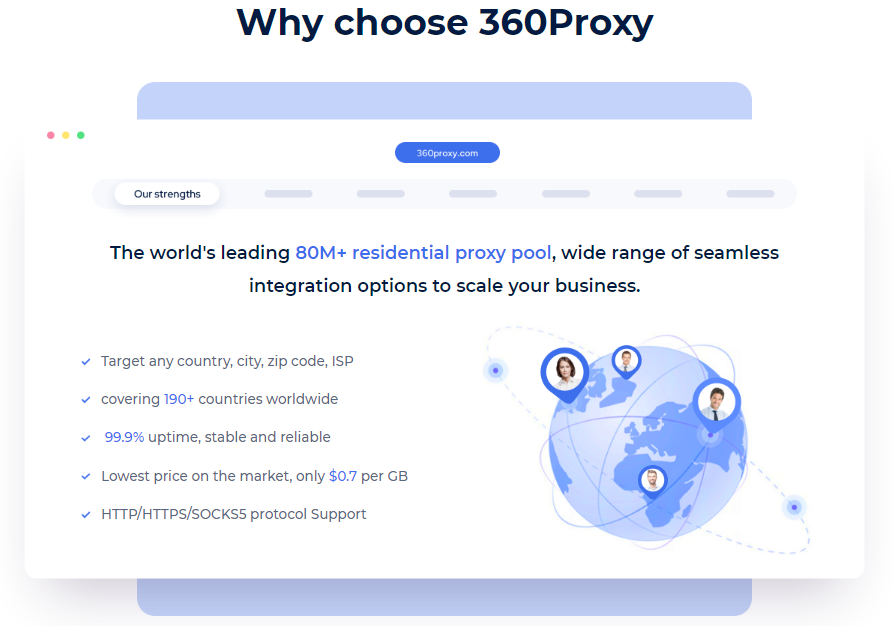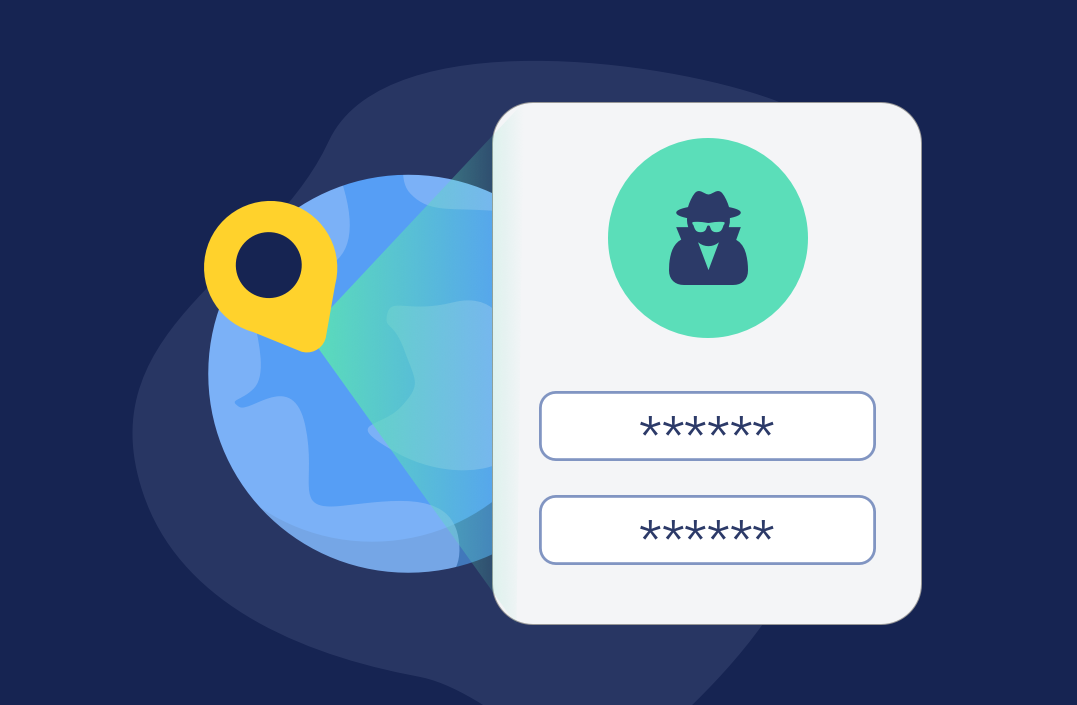Introduction
With the continuous development of the Internet, online privacy protection has increasingly become the focus of users. In this context, residential proxy, as a proxy service that can provide more real IP addresses, is favored by users for its privacy protection features. This article will delve into the privacy protection features of residential proxies and why more and more users are choosing residential proxies to protect their online privacy.
Authentic and anonymous online experience
Residential proxies are proxied through residential networks, providing users with a more authentic IP address, allowing users to behave more like ordinary home users on the network. Compared with commercial proxies, residential proxies' IP addresses are more difficult to identify as proxies by websites or service providers, thus providing a more anonymous online experience. This combination of authenticity and anonymity allows users to access various websites more freely without being blocked or restricted.
Encryption protection of data transmission
Privacy protection is not just about IP addresses, but also involves the transmission of user data. Residential proxies typically employ strong encryption to ensure that communications between users and the target server are secure. This encryption protection effectively reduces the risk of user data being stolen or monitored, providing users with a safer network environment. The application of encryption technology is not only to prevent sensitive information from being intercepted, but also to effectively resist network monitoring and sniffing attacks, increasing user network security.
IP replacement and anonymity
Some residential proxy service providers support regular IP replacement, allowing users to switch IP addresses regularly and increase network anonymity. This feature is particularly useful for users who need to regulate operations across multiple geographical locations, while also reducing the possibility of users being tracked. This dynamic IP replacement mechanism makes it more difficult for users to be tracked when conducting network activities, thus effectively protecting user privacy.
Compliance and privacy compliance
Privacy protection is not only the needs of individual users, but also involves the compliance of service providers. Most professional residential proxy service providers strictly follow relevant privacy regulations to ensure that users' personal information will not be misused or leaked. This compliance increases user trust in the proxy service. Service providers will formulate clear privacy policies to ensure that users understand how their personal data is used and provide services within a legal and compliant framework.
Privacy level suitable for sensitive tasks
Due to its highly anonymous nature and data encryption protection, residential proxies are often used to perform sensitive tasks such as security research, anti-crawler operations, etc. Users can handle sensitive information with greater confidence when using proxies without fear of privacy breaches. This improvement in privacy level allows users to conduct online activities that require a high degree of privacy protection with greater peace of mind, such as medical information inquiries, financial operations, etc.
Privacy protection that complies with local regulations
Some residential proxy service providers focus on complying with relevant local regulations, especially in countries with strict Internet controls such as China. This helps users better comply with regulations and reduce potential legal risks when using proxy services. Privacy protection that complies with local regulations allows users to obtain a better online experience while complying with the law.
Minimization of user behavior logs
Many residential proxy service providers adopt a strategy of minimizing user behavior logging, logging only necessary information such as connection times and traffic usage. This helps reduce the storage of users' personal information at the service provider and reduces the risk of user information being leaked.
Privacy education for end users
Some residential proxy service providers increase user privacy awareness by educating end users on the importance of privacy protection. This includes providing articles, video tutorials, etc. on online privacy protection, so that users can better understand how to maximize their privacy protection when using proxy services.
In conclusion
Overall, residential proxies are known for their authentic and anonymous online experience, encryption protection of data transmission, IP replacement and anonymity, compliance and compliance with privacy regulations, privacy levels suitable for sensitive tasks, and privacy protection that complies with local regulations. , minimization of user behavior logs and privacy education for end users, etc., provide users with comprehensive and multi-level privacy protection. This multiple protection mechanism allows users to feel more at ease when using residential proxy services and can conduct various online activities more confidently, which fully reflects the advantages of residential proxy in user privacy protection. When choosing a residential proxy service, users should pay attention to the privacy features provided by the service provider to ensure that the selected service meets their needs for privacy protection.
360Proxy provides 100% real residential proxy resources, covering 190+ countries and regions, and 80M+ residential IP resources. To meet the different needs of users, such as media account management, ESTY, SEO, etc., 360Proxy is a good partner that can provide huge help!

 Username: Password
Username: Password
 Whitelist IP
Whitelist IP
 Proxy Manager
Proxy Manager
 Google Chrome Extension
Google Chrome Extension





























 Dashboard
Dashboard Sign Out
Sign Out






























 USA
USA France
France Brazil
Brazil Vietnam
Vietnam Spain
Spain









